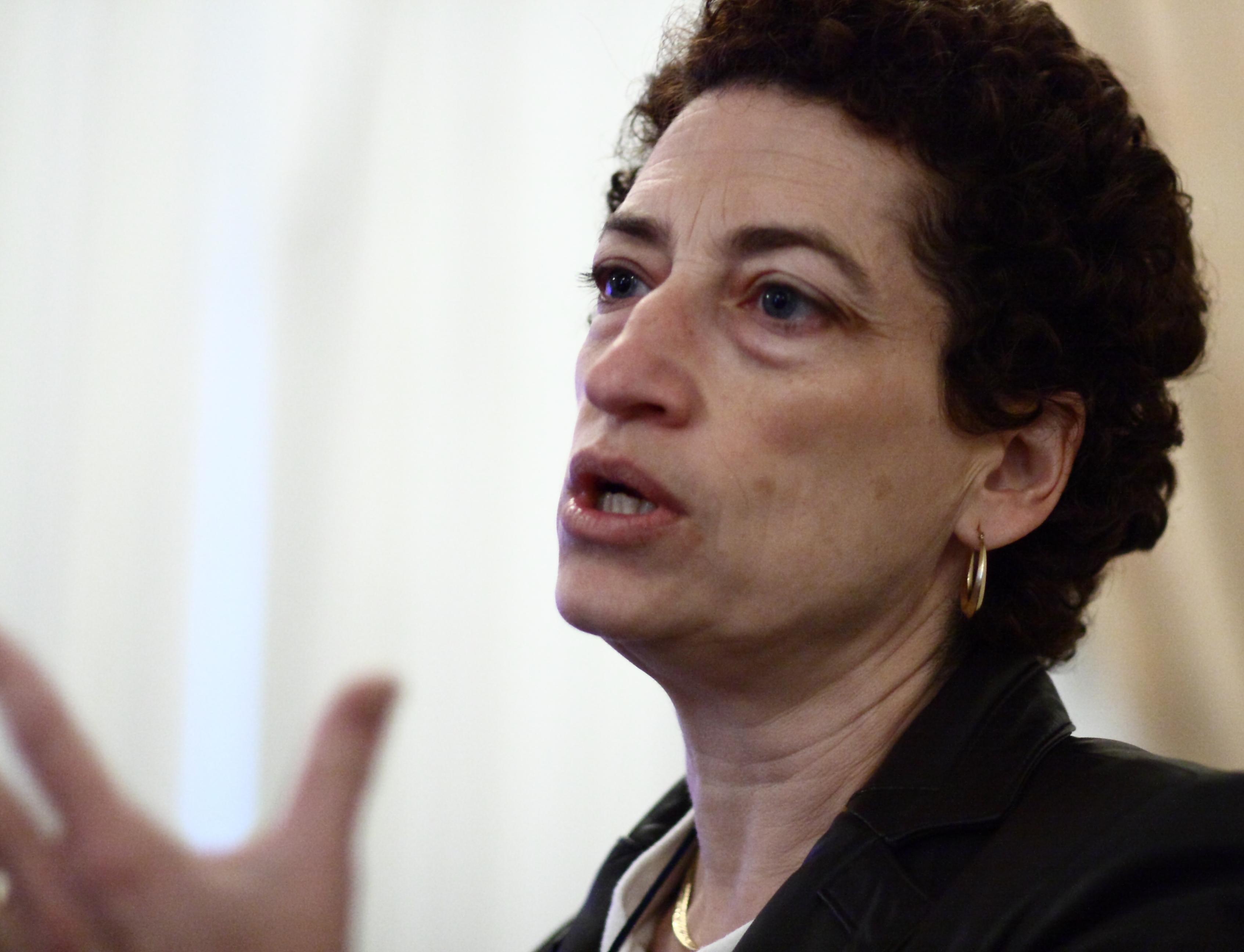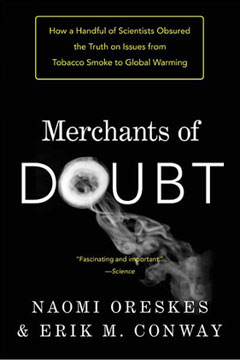
This past Friday, BardCEP Environmental Policy graduate students attended the keynote address at the Hannah Arendt Center’s fourth annual conference, “Truthtelling: Democracy in an Age Withought Facts.” The keynote address was given by Naomi Oreskes, co-author of “Merchants of Doubt: How a Handful of Scientists Obscured the Truth on Issues from Tobacco Smoke to Global Warming.” Oreskes illustrated the reasons for how the scientific consensus on global warming has been obscured by the concerted efforts of a powerful few. While Svante Arrhenius had first shown that the burning of fossil fuels leading to increased CO2 concentrations in the atmosphere would cause global warming back in 1896 it took until the 1970s for a scientific consensus on the process of global warming and its profound effects on society to be established. Global warming finally made news headlines in the ‘80s when measurable changes in the climate were quantified and the respected NASA scientist James Hansen testified in front of Congress to this effect.
Around the same time that the Intergovernmental Panel on Climate Change (IPCC) was created in the late ‘80s there emerged a focused political campaign to challenge the facts surrounding climate change. The creation of the George C. Marshall Institute, while initially focused on defending the Strategic Defense Initiative during the Cold War, evolved in the ‘90s when the threat from the Soviet Union was no longer imminent to focus on contradicting established science. Through funding scientific research to directly challenge the evidence for acid rain, ozone destruction, global warming and tobacco, the scientists funded by the Marshall Institute succeeded in instilling doubt in the minds of the public and policy makers. By funding a campaign that framed environmentalists as socialists and climate change as an excuse to increase federal power, the Marshall Institute and others were able to harness the mistrust of government and regulation to instill doubt regarding the science of climate change. Their campaign succeed in tapping into the idealist view of free markets held by many Americans by framing the issue of limiting CO2 emissions as a limit on personal freedoms.
The energy sector however, cannot be defined as a free market by any stretch of the imagination. A joint report by the World Bank, OPEC, OECD and IEA calculated that producers and consumers of fossil fuels receive more than $700 billion a year in subsidies (roughly 1% of world GDP). Sir Nicholas Stern, former Chief Economist and Senior Vice-President at the World Bank called climate change the “the greatest market failure the world has seen” in a lecture given to the Royal Economic Society in 2007. This market failure will continue to exist until there is a unified global initiative to put a price on carbon emissions. Oreskes ended the lecture with a very pertinent quote; “The invisible hand never picks up the check.”- Kim Stanley Robinson

